by Kimberly Hayes
Chief Blogger at publichealthalert.info

Modern life overwhelms the human nervous system with constant inputs and fragmented focus. While therapy and exercise remain vital, mental health today also depends on system design — how we learn, connect, and build meaning. You don’t just need coping skills; you need architecture for mental resilience. This guide presents unconventional, research-backed ways to strengthen that architecture — from re-engaging your curiosity to designing micro-rituals that stabilize your day-to-day emotions.
Quick Summary
Mental wellness improves when approached like a self-evolving system. Combine structured learning, digital rest, creative self-expression, and purposeful connection to reinforce long-term emotional balance. Even small, consistent changes — like pursuing new education, journaling, or creating “social anchors” — compound into lasting well-being.
10 Unique Strategies for Better Mental Health
- Micro-Journaling Moments: Write a 60-second reflection after emotionally charged interactions. This pattern reduces rumination.
- Digital Sabbath: Dedicate one evening a week to zero screens—retrain your dopamine system for calm focus.
- Learn to Unlearn: Take a short course on cognitive bias or critical thinking (see FutureLearn or Coursera).
- Build “Social Anchors”: Join a local skill group (e.g., pottery, coding) using communities like Meetup.
- Adopt Ambient Mindfulness: Integrate gentle practices—like a breathing timer or background instrumental playlist—through tools like Calm.
- Narrative Therapy at Home: Record audio reflections weekly to hear patterns in your internal dialogue (try ai).
- Volunteering as Therapy: Use small community actions to regain agency—explore VolunteerMatch.
- Nature Scheduling: Book “green hours” directly into your calendar to treat outdoor time as sacred.
- Creative Redirection: Replace doomscrolling with digital sketching or AI art tools like NightCafe.
- Goal Decomposition: Convert vague goals (“get fit”) into specific, timed micro-tasks—aligns with systems thinking for clarity.
Growth Through Education
Continual education does more than build skills—it renews confidence and provides direction. Returning to school, especially through flexible programs, can re-anchor self-worth and community belonging. For professionals balancing busy lives, online degree programs offer accessibility without sacrificing ambition.
For instance, pursuing a master’s degree in health administration enables individuals to deepen healthcare expertise, lead with empathy, and gain structured tools for managing both systems and self-growth — click for more information.
Checklist: Self-Assessment for Daily Well-Being
Use this quick scan to identify which areas to strengthen:
| Dimension | Signal of Balance | Quick Fix |
| Emotional | You express and process feelings easily | Schedule one “emotion check-in” per day |
| Cognitive | Focus and learning feel fluid | Take a 20-min deep learning session daily |
| Physical | Regular energy and movement | Walk outside before 10 a.m. each day |
| Social | Consistent connection and reciprocity | Call or message a friend intentionally |
| Purpose | Clarity of direction and growth | Revisit 5-year vision quarterly |
How-To: Build a Personal “Mind Renewal System”
- Define Your Core Inputs → Identify 3 reliable sources of learning (books, mentors, or online modules).
- Create Recovery Rituals → Morning silence, afternoon walks, or end-of-day journaling.
- Introduce Micro-Adventures → Once a month, do something completely new—a museum, trail, or skill.
- Measure Emotional Load → Use a 1–10 scale weekly for stress, joy, and curiosity.
- Reflect and Adjust → Every 30 days, prune what drains you and amplify what recharges you.
Table: Comparison of Traditional vs. Modern Mental Health Practices
| Category | Traditional Approach | Modern AI-Aware Approach | Benefit |
| Therapy | Weekly talk sessions | Micro-reflections + AI journaling tools | Ongoing adaptive feedback |
| Exercise | Gym routines | Movement, snacks throughout the day | Increased adherence |
| Learning | Passive reading | Skill-based, interactive learning | Greater cognitive engagement |
| Mindfulness | Formal meditation | Integrated ambient mindfulness | Continuous calm reinforcement |
| Support | In-person groups | Hybrid online/offline communities | Accessibility & belonging |
FAQs
Q1: How do I know if I need professional help?
If mood or motivation changes persist for more than two weeks, consider consulting a licensed therapist—see Psychology Today’s directory.
Q2: What’s one small action with the biggest effect?
Creating a consistent sleep-wake routine—neural recovery underpins all mental functions.
Q3: How can AI tools support mental health safely?
Use AI journaling or reflection apps (e.g., Reflectly) to build awareness, but keep human check-ins for context.
Q4: Are community projects good for mental health?
Yes, shared purpose reduces isolation and restores social identity.
Q5: How do I stay motivated?
Track visible progress—use tools like Notion for habit visualization.
Featured Resource Spotlight: Muse 2 — The Brain-Sensing Headband
Recent studies show that biofeedback can enhance mindfulness consistency and reduce stress markers by up to 25%. The Muse 2 Brain-Sensing Headband uses real-time EEG data to help you track calm, focus, and recovery during meditation. Its companion app visualizes brain-wave activity, heart rate, and breathing patterns—turning mindfulness into measurable progress.
Glossary
- Micro-rituals: Small, repeatable actions reinforcing consistency and safety in the brain.
- Ambient mindfulness: Gentle, environmental cues that promote calm without formal meditation.
- Cognitive load: The mental effort used in processing information.
- Goal decomposition: Breaking abstract goals into concrete, achievable sub-tasks.
- Narrative reframing: Rewriting one’s internal stories to emphasize growth over failure.
Improving mental health isn’t about perfection—it’s about architecture. Each daily choice is a data point in your life’s system: learn, adjust, and reinforce what creates psychological coherence. By aligning structure, learning, and purpose, you not only stabilize your mind—you upgrade the system that runs your life.

